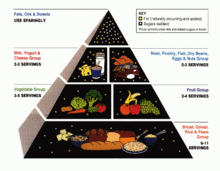A recent literature review checked that https://www.ncbi.nlm.nih.gov/pmc/articles/PMC5786199/ one of their conclusions was
Thanks for that link. Don't have time to dive into it, but it looks like it's a review of various overfeeding studies throughout the last few decades?
Personally, I found this conclusion a lot more compelling (but I'm biased):
In conclusion, it is evident that overfeeding on carbohydrate and/or fat results in body composition alterations that are different than overfeeding on protein. It is commonly believed that 3,500 kcal is equivalent to 0.45 kg (1 pound) of fat and that changing energy balance in accordance with this will produce predictable changes in body weight. However, the overfeeding literature to date does not support this assertion. Dietary protein appears to have a protective effect against fat gain during times of energy surplus, especially when combined with resistance training. Therefore, the evidence suggests that dietary protein may be the key macronutrient in terms of promoting positive changes in body composition.
Basically saying that there is nothing to support the idea that all calories are equal in terms of weight gain.


